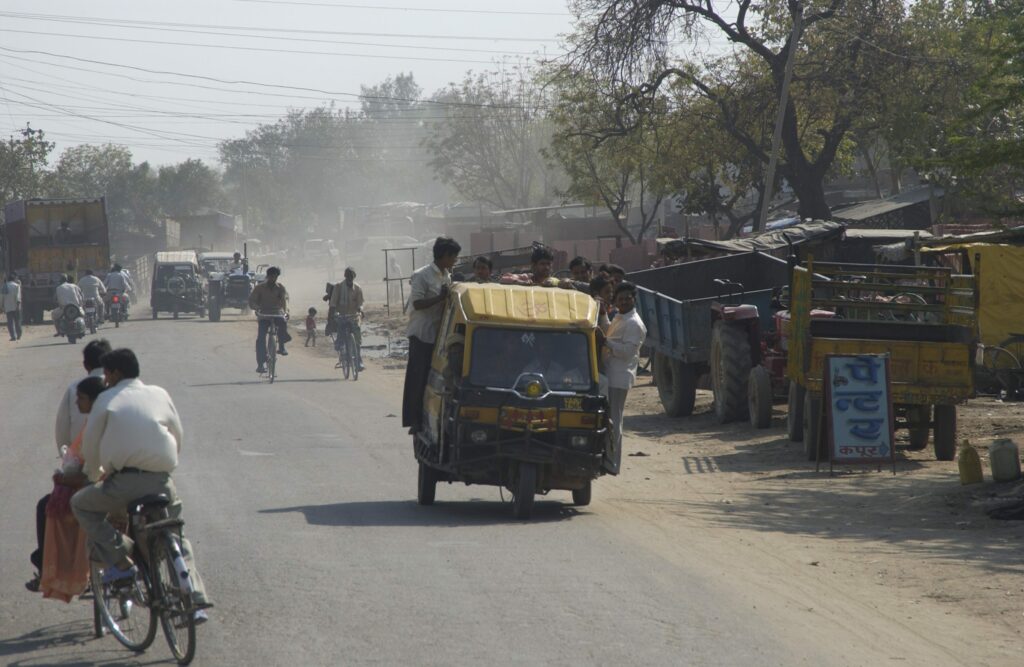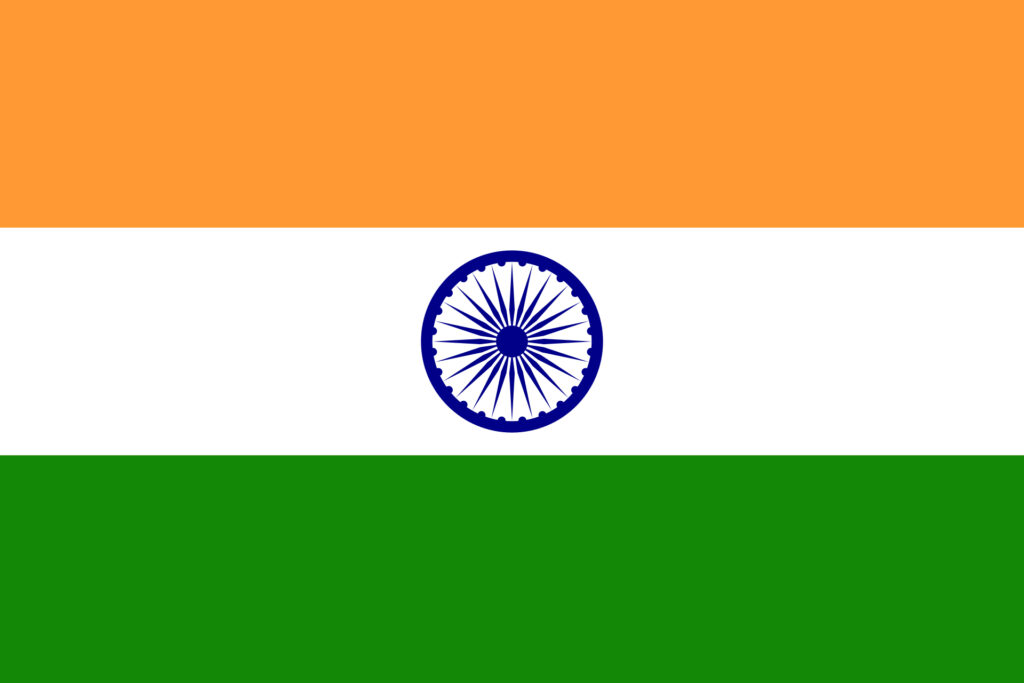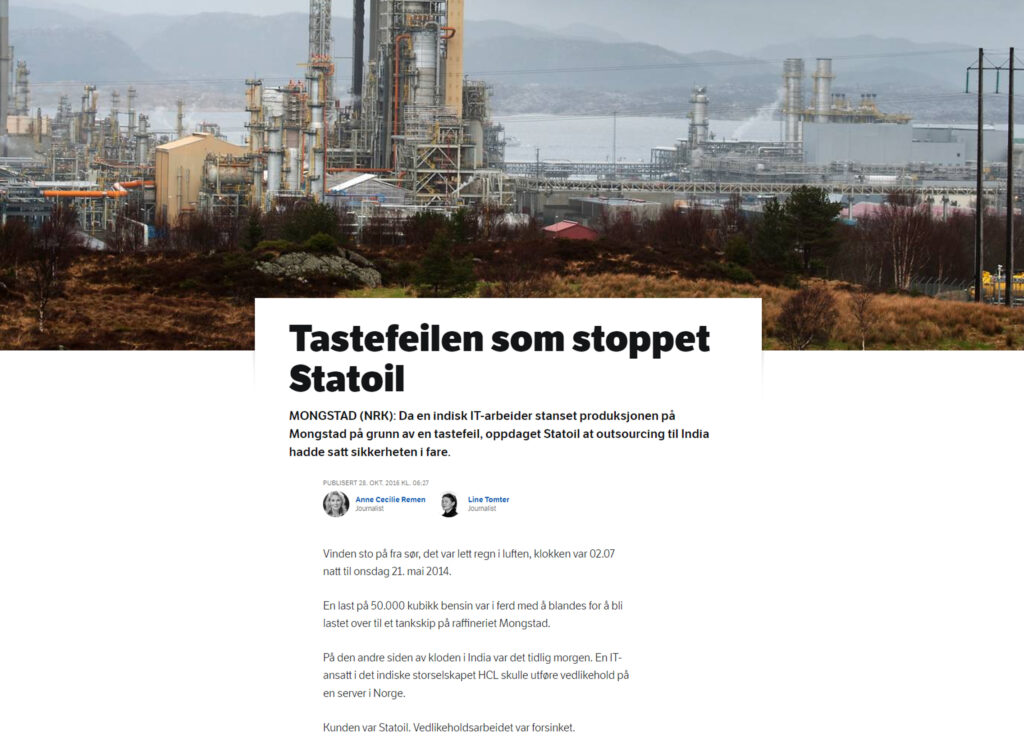IT services from India

India offers big opportunities and great challenges. The country is known for a high level of expertise in information technology, but does less well in supplying its residents with energy.
With almost 1.4 billion people in 2021, India has the world’s second highest population after China and is often referred to as its largest democracy. Economic growth has been huge since 2000, but India is still characterised by deep social inequalities, and a big proportion of its people live in poverty.
Environment and energy

Rapid population growth and inadequate societal structures have created extensive problems for India. Many places lack clean water and a functioning sewage system. Uncontrolled discharges of toxic waste from expanding industries mean that 70 per cent of India’s surface water is contaminated. More than two million of its people are estimated to die annually from air and water pollution. A study by the World Health Organisation showed that New Delhi and Mumbai are among the five most polluted cities in the world.
Electricity is also in very short supply, and the World Bank estimated in 2018 that about 200 million Indians have no power.[REMOVE]Fotnote: https://www.fn.no/Land/india, accessed 28 September 2021. The country needs more energy for industry and households, and the question is how to provide this without creating big environmental problems.
According to Equinor’s website, the company’s goal for its presence in India is to gain greater understanding of the country’s energy sector involving petroleum and renewables. The New Delhi office will also support initiatives in marketing, trade and business development.[REMOVE]Fotnote: Equinor’s website.
Indian IT support
Returning to IT support, this is a service all companies above a certain size need. During the 1980s and 1990s, Statoil had its own department to ensure that computer systems worked as they should. As the company acquired a global reach, with offices in more than 30 countries across various time zones, that job became more complicated. Foreign IT companies could offer cheaper services than Statoil employees in Norway.

That was when the company, like many large businesses, decided to outsource services related to computing. A major contract for IT infrastructure and databases was awarded to Hindustan Computers Limited (HCL) in 2011, with effect from January 2012.
HCL is a huge global company based at Noida in Uttar Pradesh. In 2021, it had almost 169 000 employees and serviced a great many companies involved in all sorts of sectors in 50 or so countries worldwide.[REMOVE]Fotnote: https://www.hcltech.com/, accessed 27 October 2021.
Statoil/Equinor’s contract with this provider has been expanded several times. It covers monitoring and managing the whole company’s IT infrastructure across all global locations, including every offshore production site.[REMOVE]Fotnote: Jorunn Birkeland, 28 September 2021, Equinor’s 50th anniversary Facebook page. One risk with such a division of work is that Equinor shares sensitive information about its business and from its databases with a company based in a country on another continent.
In everyday terms, collaborating with personnel at the Indian help centre took some getting used to. It could have unintended consequences. “At the start, of course, they called back from an Indian phone number,” one employee recalls. “I was sure it was a spam call, so I hung up several times.”[REMOVE]Fotnote: Cato Wille, 28 September 2021, Equinor’s 50th anniversary Facebook page.
A more serious problem was that a mistake by an IT operator could put operation of oil installations in danger. One incident of that kind occurred in October 2016, when a keystroke error took the Indian support staffer into a server he should not have had access to behind the firewall in the computer system at Mongstad, Norway’s largest refinery. He understood that this was a mistake, panicked and tried to solve the problem by restarting his PC. That shut down production at Mongstad. Fortunately, refinery personnel took control manually when the computerised process collapsed. The discharge of petrol to the sea was limited, and the financial loss less than NOK 1 million.
The Norwegian Broadcasting Corporation (NRK) subsequently uncovered documentation of 29 incidents where Indian IT staff had breached barriers on platforms, at land plants and centrally in Statoil. Union officials in the company maintained that HCL personnel represented a safety risk.[REMOVE]Fotnote: https://www.nrk.no/norge/xl/tastefeilen-som-stoppet-statoil-1.13174013. Despite such complaints, however, the provider was not replaced.

As Equinor and HCL have gained more experience with each other, the frustrations have declined somewhat. Stricter security checks have been introduced for personnel in India, with fewer of them being given master access to Statoil. The unions were successful in getting some of the most critical infrastructure tasks moved back in-house. It took a long time to rebuild a specialist team which could handle these.[REMOVE]Fotnote: Jorunn Birkeland, op.cit.
The establishment of an HCL branch office at Equinor’s Stavanger headquarters has also created closer relations with the Norwegian management and service users, as well as better understanding of the actual work done by the company.[REMOVE]Fotnote: https://www.hcltech.com/geo-presence/norway, accessed 27 October 2021.
arrow_backExploration interest in KenyaOil and the environment in Australiaarrow_forward